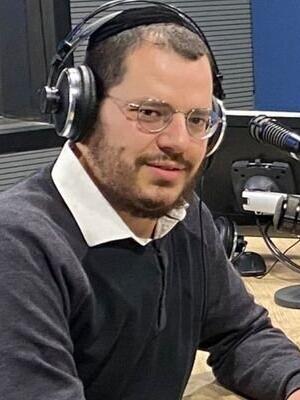Getting your Trinity Audio player ready...
Since the October 7 massacre, the question of the participation of ultra-Orthodox young men in the military has been an exposed Israeli wound. Unlike previous rounds of public debate, this time the discussion is made up of deep and authentic layers of pain. This is not politics. Anyone who has taken part in military funerals, anyone who has seen the deep pain and immense void in the eyes of the families, understands that there is no end to the abyss of pain.
More stories:
Out of the war-inflicted pain, many honestly ask: "Where are the ultra-Orthodox?" An ultra-Orthodox politician who belittles this pain can not begin to understand this pain in Israeli society. This pain needs to be embraced. We are partners in this country, subject to the same threats, hated by the same enemies, and threatened by the same dangers; Therefore, we are required to respond to the Israeli dilemma regarding our common security mission.
Indeed, these thoughts occupy many in the ultra-Orthodox community. A comprehensive survey conducted on behalf of the Haredi Institute for Public Affairs showed that about 70% of the ultra-Orthodox public believe that those who do not study Torah should contribute to military or civilian service.
It is easy to disrupt this important internal Haredi discussion, but instead it is advisable to start with what exists: Thousands of Haredim serve in civilian organizations that provide vital support to hundreds of thousands of evacuees, victims, injured and bereaved families.
The sacred work of honoring the deceased is done by the dedicated hands of hundreds of ultra-Orthodox Jews, both in ZAKA and in IDF casualty identification units, where they leave their families and are exposed to soul-shattering horrors. Recently, I have been exposed to belittling expressions regarding this service. "You will not deal with our bodies," someone taunted. Beyond the fact that such expressions are unhelpful, they are also unfair. Haredim in the military rabbinate do holy work.
From here, one should address the more complex parts of the discussion. There is nothing easier than calling on all ultra-Orthodox youth to join the IDF. Spoiler alert: It will not happen. Most of the articles and interviews published these days in the mainstream media echo this sentiment. These will not solve one of the most pervasive issues in Israeli society for the past 75 years.
The emotional understanding, the piercing statements, are accepted in light of the bloody background in which they are uttered. However, to begin the required process, one must speak with the Haredi public, and not talk over their heads or criticize them. It is certainly permissible to criticize, but it will not advance any purpose.
For the ultra-Orthodox public, the value of Torah study is paramount, the essence of existence. In their view, the place of Torah scholars is not subject to discussion. So yes, Israel copes with special needs. Therefore, from the ultra-Orthodox perspective, the discussion should revolve around only those who do not study.
Is the army ready to add them to its ranks without taking their identity away from them? Is the top command of the IDF willing to compromise on values that contradict the ultra-Orthodox way of life to open the ranks to young Haredim who want to serve without integrating into the cultural shock that is foreign to their way of life?
 Arye Erlich
Arye ErlichAny discussion on the subject can only take place after the other side accepts that the ultra-Orthodox public sees itself as committed to the mission of Torah study and holds that value above all else. The demand of the ultra-Orthodox public to clear out the yeshiva halls for the sake of any service is perceived as an attack on the ultra-Orthodox way of life.
When the discussion is conducted from a point of understanding of the ultra-Orthodox society, it will be possible to talk about the other half of the deal: the integration of thousands of ultra-Orthodox youth into the army without harming their identity, as well as the drafting the ultra-Orthodox who have passed the age of yeshiva. The discussion will be difficult, sometimes unbearable. However, we will be here to talk about it, hoping that one day a solution will be found.
Arye Erlich is an editor of Mishpacha magazine.

